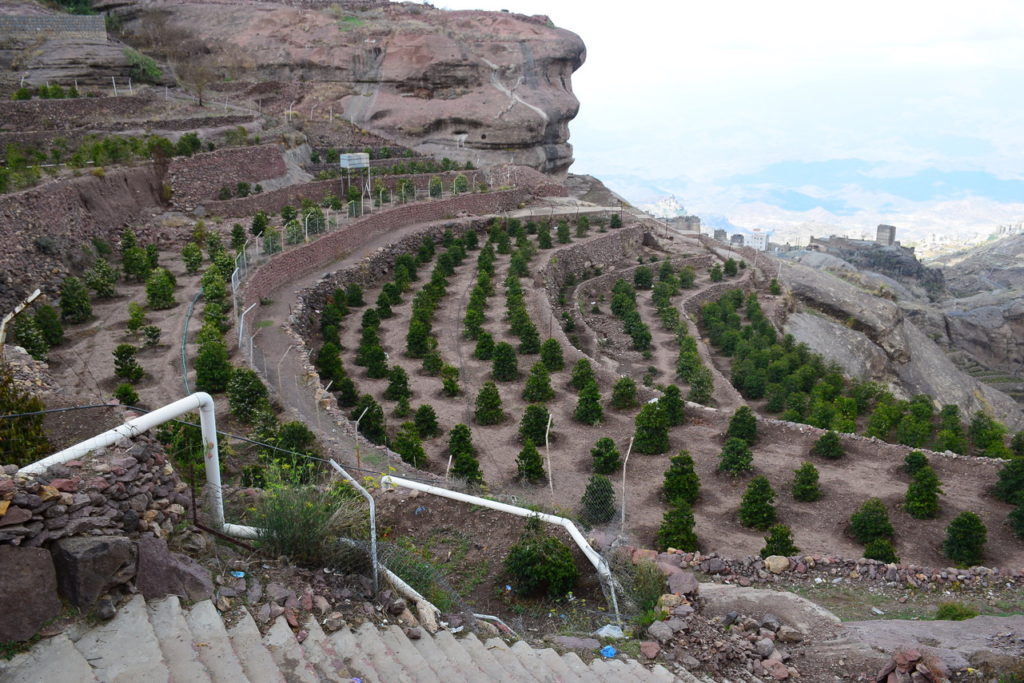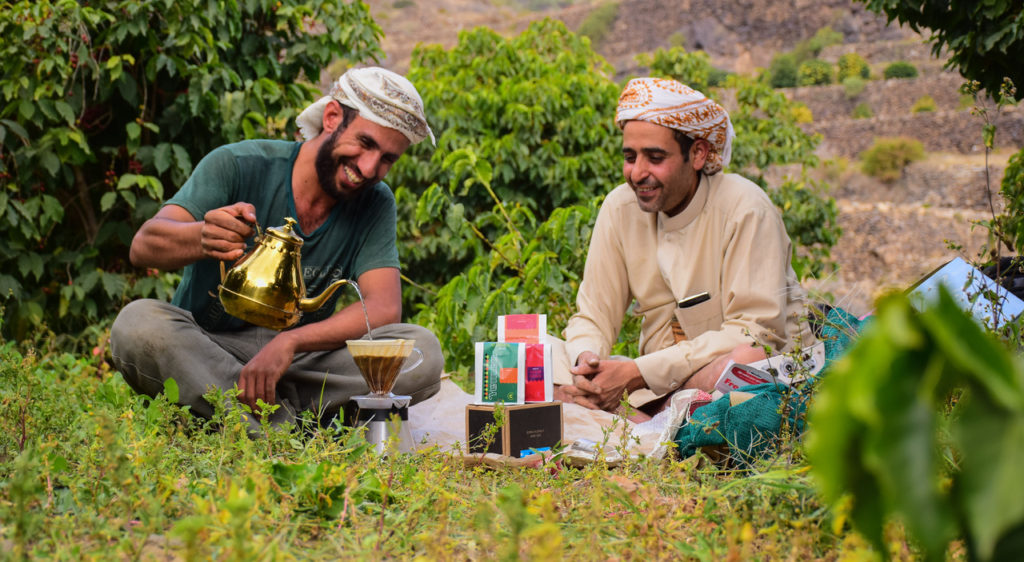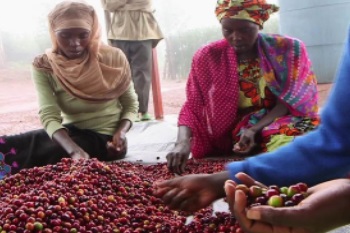Coffee Arabica: The identity of Yemen
The very term “Mocha” originated from the legendary port city of Mokha of Yemen- where coffee was being traded in the 15th century with the Far East and Europe. Yemen prides itself on being the first cultivator of Coffee Arabica in the world. A country that produced the vast majority of the world’s coffee (more than 50,000 tons in the late 19th century) today is facing one of the worst humanitarian crises, the effects of which can be largely seen and felt in the coffee sector. Since 2015, Yemeni coffee beans have become difficult to trade-in due to war and restrictions to transportation within the country. The most recent data shows a weak production level – about 9000 tons of coffee is being produced in Yemen per year.
Specialty coffee is grown in select mountainous regions
Yemeni coffee derives its exotic and pungent flavors from being cultivated at an altitude of 2400 meters above sea-level along with dry weather conditions and minimal rain in select mountainous regions. Factors such as these result in a fairly high-priced coffee. The biggest coffee-producing highlands in the North is Sanaa, Hajjah, Sa’dah, and Al Mahweet.
The West region comprising of Bura’a in Al Hodaidah governorate and Raymah are equally important coffee cultivators. Apart from these the South East and southwest regions consisting of Yafea, Abin, Lahj, Al Baidha, Dhamar, and Taiz are some of the key coffee growing regions in Yemen.
According to statistics, coffee is being cultivated in 80% of the country’s governorates giving it an edge over some of the largest coffee producers in the world. The main varieties of coffee grown in Yemen are Odaini, Tufahi, Dawayri, Bura’I and Jaadi – Yemeni women make up for 75% of the coffee farmers. Each of these has a distinctive taste profile which makes Yemeni coffee even more unique.

Coffee Supply Chain – Constraints during Crisis
Coffee forms an important source of livelihood for Yemen’s economy and particularly to the rural population. Estimates show that Yemen’s untapped export potential in coffee is as high as 60% of the total export potential. Yemen’s coffee export price is on average higher than the international average price, reflecting its superiority in quality. However, due to low productivity, this has not translated into high incomes. Low production is mainly due to shortage of water, pests, and diseases, costs of fertilizers and wages, etc. Further compounding the problem is Yemen’s humanitarian crisis which has led to severe economic downfall and increased costs of trading, apart from improper logistics and infrastructure facilities.
Excerpts of the interview with Mr.Abdul Latif Al Jaradi, CEO – Mokha Story
Tell us about the brand Mokha Story?
We initially launched our former brand named “Mokha Route” in 2019 which mainly dealt with the export of green coffee beans. Recently, we changed our business model to begin a new brand called” Mokha Story” with the idea of branding Yemeni coffee based on its history, flavor, and rarity. Apart from exporting coffee beans, we aim to become a consultant for coffee farmers as well as buyers in order to form a strong business relationship at both the ends. Our long term plans are to setup roasteries in Yemen in order to supply a coffee brand that has been grown and processed in Yemen and thereby reduce costs and help farmers earn a better income.
Yemen specialty coffee is gaining traction in international markets. Can you throw some light on the same?
The revolution of specialty coffee began in 2015, a period when Qat( an intoxicating drug) was being replaced with coffee shrubs. Since then, the Agricultural Ministry in Yemen together with the help of the various Coffee Cooperatives Societies have started to support farmers by supplying coffee seedlings as well as by providing them technical advice on coffee cultivation and ensuring best farming practices are followed. At present, two of the leading Yemeni specialty coffee brands are Port of Mokha and Qima Coffee. We position ourselves as the third in the list.

Which are the main export markets of Yemeni specialty coffee?
In the Arabian Peninsula, Saudi Arabia is the largest export market of Yemeni coffee, followed by Oman and Egypt. KSA consumes nearly half of Yemen’s coffee produce annually (Only estimates are available ). The EU and the USA are the main export markets for Yemen’s specialty coffee. We are seeing a lot of demand from China as well. And, so China may emerge as a booming market for Yemeni specialty coffee.



